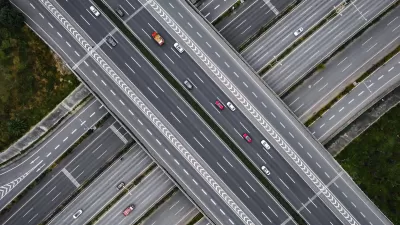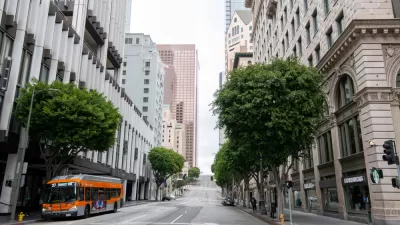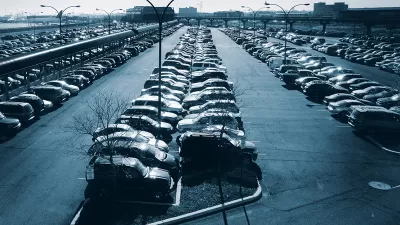While most of the world’s population doesn’t drive, cars have an outsized negative impact on public health, the environment, and land use.

A wide-ranging new analysis of “automobility” reveals the many ways that car-dependent design harms people and neighborhoods, writes Kea Wilson in Streetsblog USA. “Just taking into account car crashes and fatalities linked directly to car-related air pollution and lead exposure, automobility kills at least 1.67 million people around the world every year — a total of 60 to 80 million since the advent of the automobile.”
Beyond road deaths, the analysis shows how cars also contribute to pollution, worsening health, inefficient land use, and more. The analysis seeks to move away from a cost-benefit analysis that puts a price on human lives and environmental health and evaluates the broader harms that a car-centric culture causes. “From car crashes to pollution, virtually every item on this list disproportionately impacts socially and racially marginalized people — not least people who don’t drive, which the study authors point out constitutes ‘most people on the planet.’”
FULL STORY: All The Ways That Car Domination Harm Communities (Well, Almost All…)

Planetizen Federal Action Tracker
A weekly monitor of how Trump’s orders and actions are impacting planners and planning in America.

Congressman Proposes Bill to Rename DC Metro “Trump Train”
The Make Autorail Great Again Act would withhold federal funding to the system until the Washington Metropolitan Area Transit Authority (WMATA), rebrands as the Washington Metropolitan Authority for Greater Access (WMAGA).

The Simple Legislative Tool Transforming Vacant Downtowns
In California, Michigan and Georgia, an easy win is bringing dollars — and delight — back to city centers.

The States Losing Rural Delivery Rooms at an Alarming Pace
In some states, as few as 9% of rural hospitals still deliver babies. As a result, rising pre-term births, no adequate pre-term care and "harrowing" close calls are a growing reality.

The Small South Asian Republic Going all in on EVs
Thanks to one simple policy change less than five years ago, 65% of new cars in this Himalayan country are now electric.

DC Backpedals on Bike Lane Protection, Swaps Barriers for Paint
Citing aesthetic concerns, the city is removing the concrete barriers and flexposts that once separated Arizona Avenue cyclists from motor vehicles.
Urban Design for Planners 1: Software Tools
This six-course series explores essential urban design concepts using open source software and equips planners with the tools they need to participate fully in the urban design process.
Planning for Universal Design
Learn the tools for implementing Universal Design in planning regulations.
Smith Gee Studio
City of Charlotte
City of Camden Redevelopment Agency
City of Astoria
Transportation Research & Education Center (TREC) at Portland State University
US High Speed Rail Association
City of Camden Redevelopment Agency
Municipality of Princeton (NJ)





























